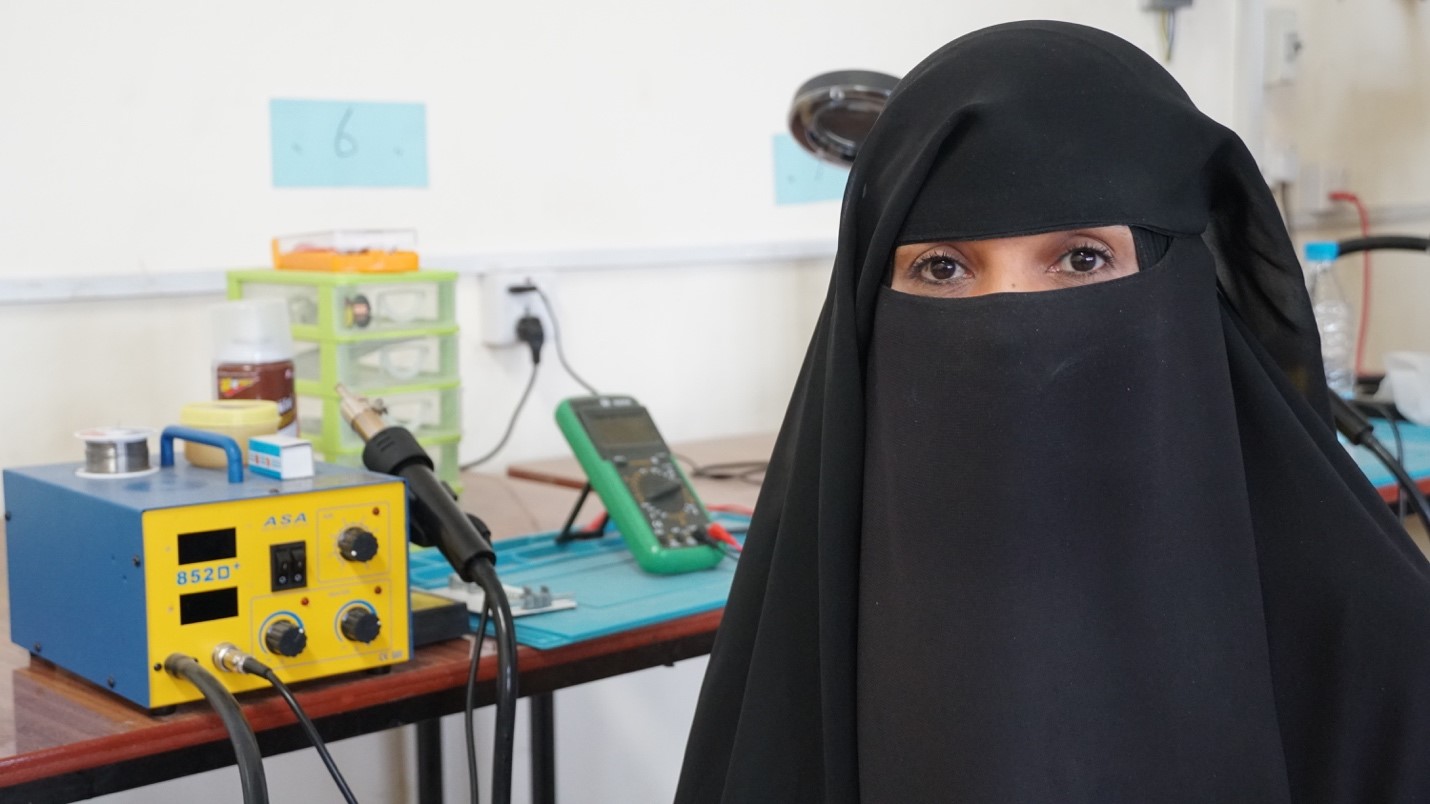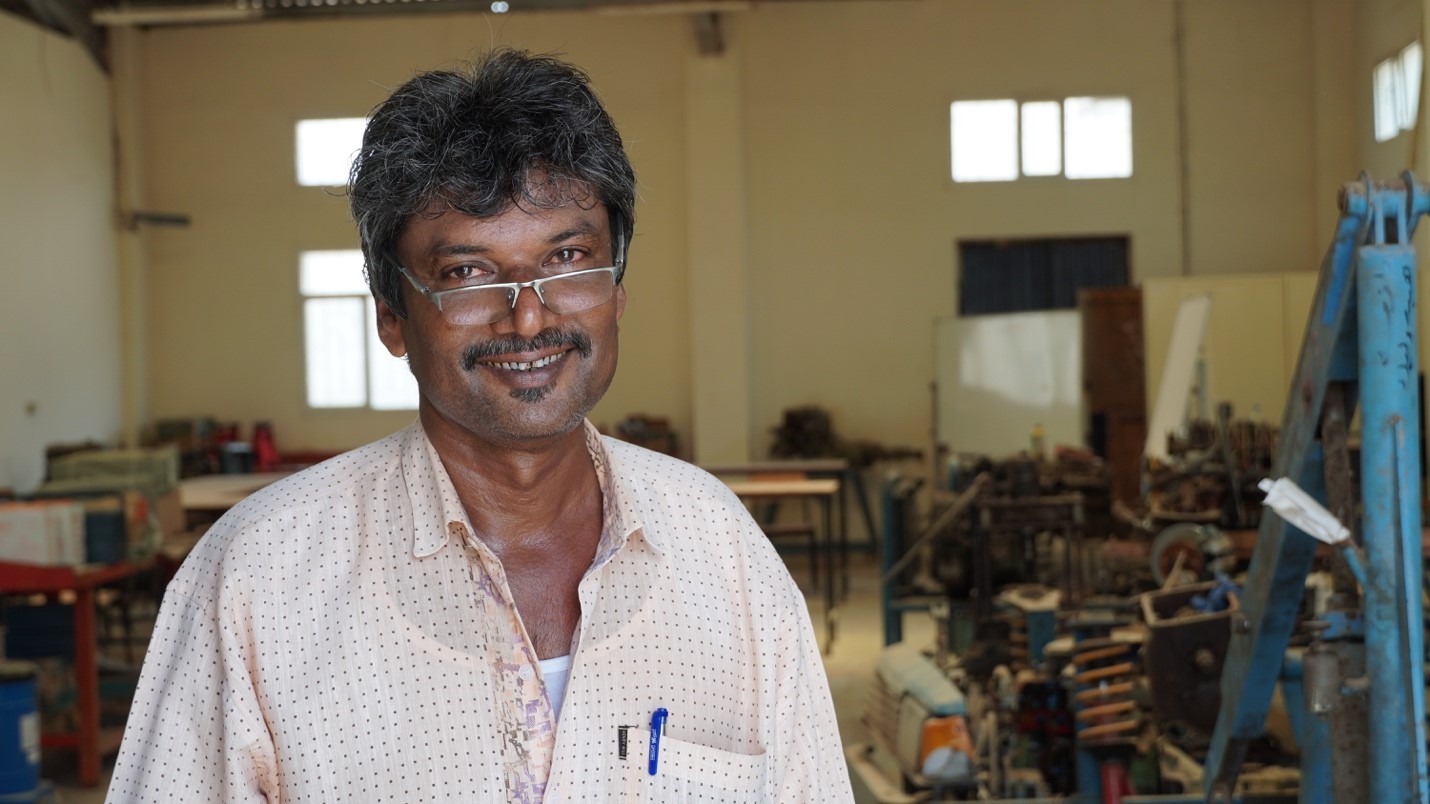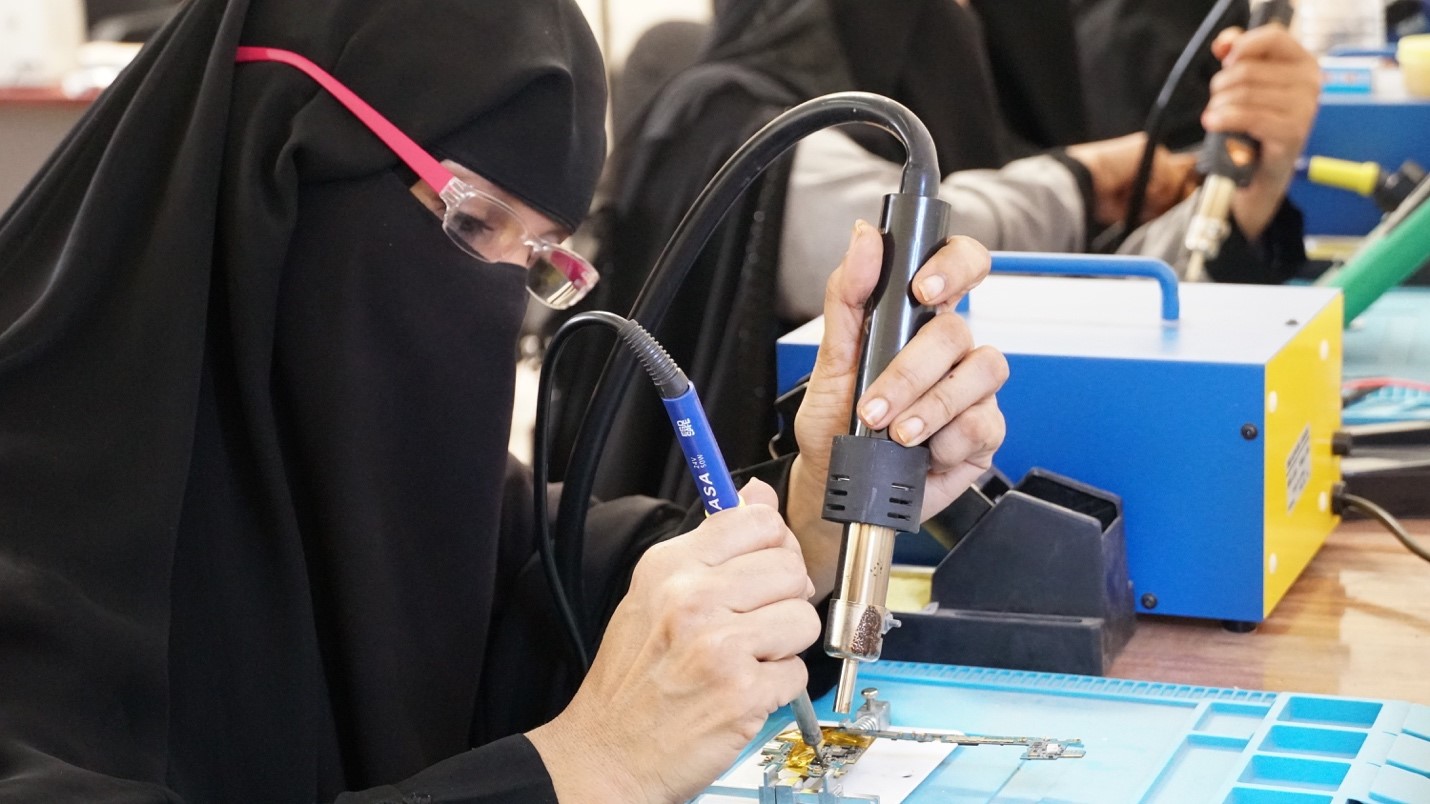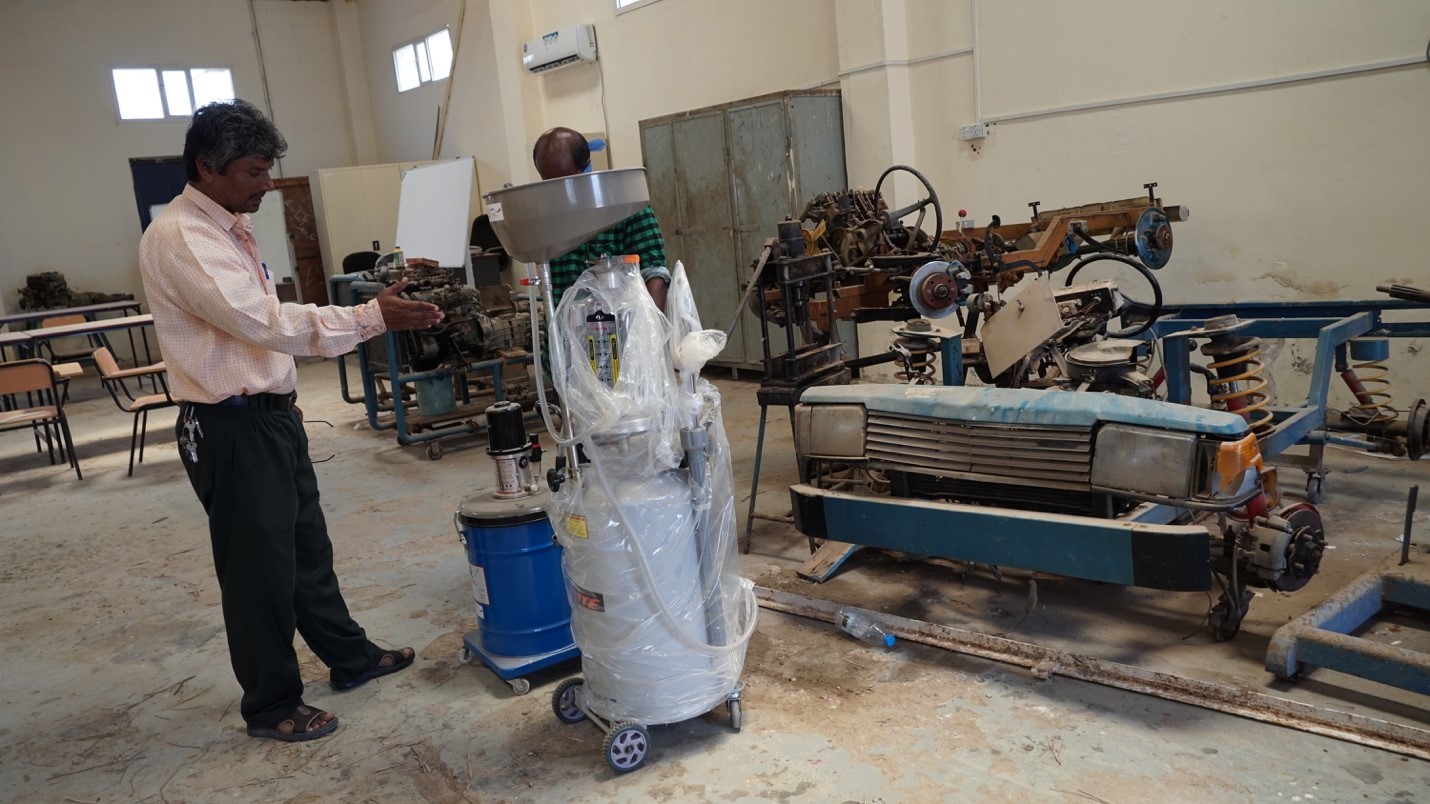Yemen’s working-age population is increasingly vulnerable to unemployment due to the devastating socioeconomic effects of years of conflict, and a reversal of development including the collapse of educational institutions. Insecurity and economic instability is resulting in a lost generation of young people, but vocational and technical education and training (TVET) can play a big role in providing opportunities and helping skilled workers to access the labour market.
Due to the absence of financial support, the infrastructure of Aden’s three main technical institutes has deteriorated over the years, with fighting in the city destroying the facilities’ buildings and equipment.
Bahja Saeed Abdullah is a 39-year-old mother of three and a trainer at the Technical Commercial Institute in Khormaksar district of Aden governorate. Bahja used to dream of becoming an entrepreneur, but her dream was disrupted by her responsibilities as a mother, and in addition she had to help her unemployed husband to provide for their family.
“During the period of the armed fighting in Aden vocational institutes were closed,” she says. “Education and salaries were suspended, and we lost our only source of income during a very difficult time. When the situation settled in the city, we were shocked to find out that the institute in Khormaksar was destroyed and most of its equipment was missing.” Like most public institutions in Aden, the vocational and technical education sector was subjected to destruction and neglect.
Najeeb Jaafar, a 48-year-old from Aden, works as deputy director of the Commercial Technical Institute. “Young Yemeni people have always demanded decent jobs, better livelihoods and more opportunities,” he says. “The conflict has been very bad for the economy and increases the risk of further instability.”



